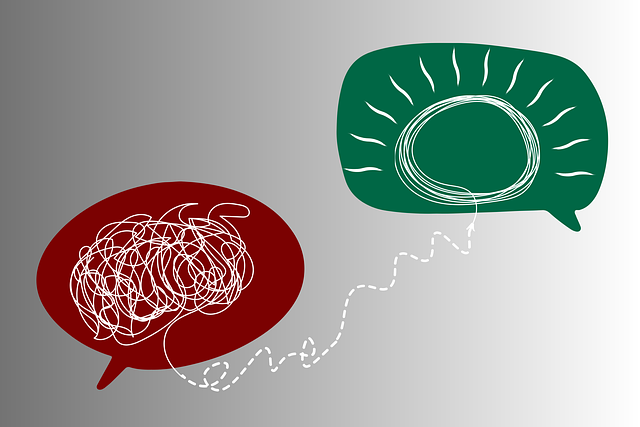Broomfield Independent Medical Evaluations (BIME) leverage therapy as a key component to improve mental illness diagnoses. Conducted by qualified professionals outside the patient's primary care network, BIME offer comprehensive assessments integrating evidence-based stress reduction methods and techniques like Emotional Intelligence and Mindfulness Meditation. This holistic approach enhances diagnostic accuracy, fosters patient engagement, and leads to more effective treatment planning, ultimately improving mental health outcomes for Broomfield residents.
Mental illness diagnosis accuracy is paramount for effective treatment and recovery. However, navigating complex symptoms and comorbidities presents significant challenges. This article explores strategies aimed at enhancing diagnostic precision, focusing on two key aspects: independent medical evaluations (Broomfield IMEs) as objective assessments and integrating therapy as a complementary tool. By understanding the limitations of current practices and adopting these improvement efforts, healthcare providers can ensure more accurate diagnoses, leading to better patient outcomes.
- Understanding the Challenges of Mental Illness Diagnosis
- The Role of Independent Medical Evaluations in Enhancing Accuracy
- Integrating Therapy as aComplementary Tool for Improved Diagnostics
Understanding the Challenges of Mental Illness Diagnosis

Diagnosing mental illness accurately can be a complex and challenging task. The subjective nature of many symptoms coupled with the wide range of possible conditions creates a significant hurdle for healthcare professionals. Additionally, individuals often present with varying levels of insight into their own experiences, which can impact their willingness to disclose relevant information. This complexity is further exacerbated by the fact that mental health disorders often co-occur, making differential diagnosis even more intricate.
In Broomfield, independent medical evaluations play a crucial role in enhancing diagnostic accuracy. These comprehensive assessments, incorporating therapy and crisis intervention guidance, allow for a thorough exploration of an individual’s history, current symptoms, and overall mental wellness. By integrating evidence-based stress reduction methods, healthcare providers can improve diagnosis reliability, ultimately leading to more effective treatment planning and improved patient outcomes.
The Role of Independent Medical Evaluations in Enhancing Accuracy

Independent Medical Evaluations (IMEs) play a pivotal role in enhancing the accuracy of mental illness diagnoses. These comprehensive assessments, often conducted by qualified professionals outside the patient’s primary care network, offer an unbiased perspective on symptoms, medical history, and overall well-being. By integrating IMEs into the diagnostic process, healthcare providers gain valuable insights that can lead to more precise and personalized treatment plans for individuals struggling with mental health challenges.
In the context of Broomfield Independent Medical Evaluations, therapy becomes a more effective tool when underpinned by rigorous assessment. This is particularly crucial in addressing the pervasive Mental Illness Stigma Reduction Efforts. An accurate diagnosis not only fosters trust between patients and healthcare providers but also empowers individuals to actively engage in coping strategies like Emotional Intelligence and Mindfulness Meditation, ultimately leading to improved mental health outcomes.
Integrating Therapy as aComplementary Tool for Improved Diagnostics

Integrating therapy as a complementary tool has emerged as a promising strategy to enhance the accuracy of mental illness diagnoses. Broomfield Independent Medical Evaluations (BIME) recognizes this potential and is leveraging therapy sessions to provide more nuanced insights into patients’ conditions. By incorporating therapy alongside traditional assessments, BIME aims to improve diagnostic reliability, especially for complex cases where symptoms may overlap or be less apparent. This approach allows for a deeper exploration of an individual’s emotional well-being, social interactions, and coping mechanisms.
Therapy sessions offer a safe space for patients to express their thoughts and feelings, providing valuable context that can influence diagnosis. Techniques like Social Skills Training and Communication Strategies, which focus on enhancing interpersonal relationships and effective communication, are increasingly incorporated into mental health evaluations. This holistic approach not only improves diagnostic accuracy but also fosters better patient engagement and understanding, ultimately contributing to more effective treatment plans. Moreover, heightened Mental Health Awareness among healthcare professionals facilitates the early recognition of subtle symptoms, leading to timely interventions.
Mental illness diagnosis accuracy has long been a complex issue, but through understanding the challenges and implementing strategic solutions, significant improvements are achievable. Independent Medical Evaluations (Broomfield IMEs) play a crucial role in enhancing diagnostic precision by providing objective assessments, while therapy serves as a complementary tool to improve both the depth of patient understanding and the effectiveness of treatment plans. By integrating these approaches, healthcare professionals can ensure more accurate diagnoses, leading to better patient outcomes.








